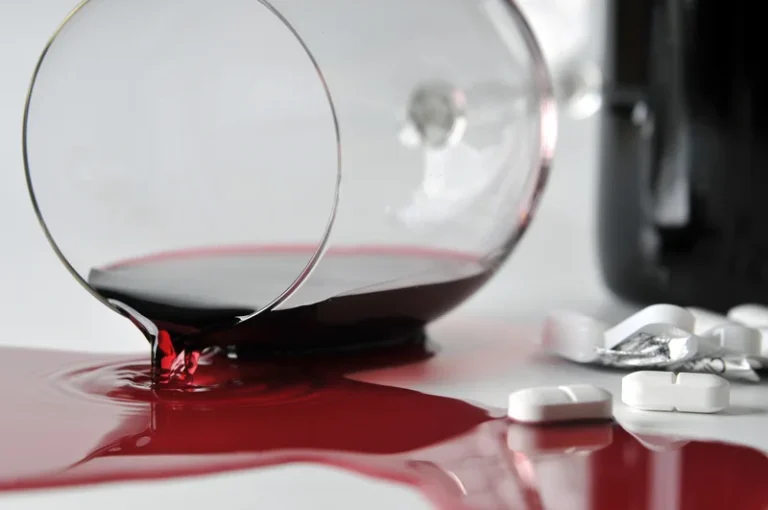How Long Does Alcohol Stay In Your System? Urine, Blood, Saliva, Hair & More


Talking to your doctor before taking NyQuil and other medications is best. They can help you understand the possible risks and decide if it’s a safe choice for you. Mixing NyQuil and alcohol is dangerous and can have serious consequences. It increases the chance of an overdose, liver damage, impaired immune system, and addiction. Other factors affect the intoxication level that will cause BAC to rise more quickly and fall more slowly.
Alcohol Detox Programs
Food slows the emptying of the stomach into the small intestine, where alcohol is very rapidly absorbed. Alcohol, also known as ethanol or ethyl alcohol, is the ingredient found in beer, wine, and spirits that causes drunkenness. While you cannot flush alcohol out of your system faster, there are a few things you can do to help yourself feel better and support your body as it recovers. As you age, alcohol remains in your system longer because your body becomes less efficient at metabolizing it. Older adults also tend to have a lower volume of total body water, which can slow down alcohol metabolism. Self-help support groups, such as Alcoholics Anonymous (AA), provide a safe and supportive environment to share stories and experiences.


How Does Your Body Get Rid of Alcohol?


It’s difficult to predict who will and who won’t experience alcohol withdrawal — and how severe it will be. When you stop consuming alcohol after prolonged, heavy use, your CNS can’t respond or regulate itself fast enough. It becomes overexcited because there’s no more alcohol how to flush alcohol out of your system in 24 hours to slow it down. Also, be sure to have a ride lined up if you are drinking away from home. Even if you are below the legal limit, it’s never safe to drive with any amount of alcohol consumption. The rate at that alcohol can stay in your system depends on various factors.


Factors That Influence Alcohol Processing
Many aging adults also take medication that can affect liver function, slowing the process further. In addition to physical symptoms, a person will likely experience some psychological side effects, such as alcohol cravings or anxiety. When a person is ready to quit drinking, they should consider seeking professional help to reduce the intensity of the symptoms. So the next time you’re out on the town, try the one-drink-an-hour experiment. You never know — it might be nice to know exactly when you’ll be back to normal again.


The answers to these questions are dependent on a variety of factors, including the amount of alcohol and the number of drinks consumed. Alcohol also stays in different parts of the body for different amounts of time. These factors determine how long it takes for a person to reach a state of sobriety. The more you drink, the longer it takes for alcohol to leave your body. One standard drink, which is equal to 12 ounces of regular beer, will generally raise a 150-pound adult’s blood alcohol content to between 0.02 and 0.03. However, the affect that one drink will have on the percentage of alcohol in your blood can vary greatly according to a complex group of personal factors.
- Your liver has enzymes that work like special tools to help metabolize (break down) different toxins that enter your body, such as alcohol.
- To see how long various tests will detect alcohol, please consult the table below.
- Alcohol can be detected in the hair for around 90 days after an alcoholic drink was consumed.
How Fast Does the Liver Metabolize Alcohol?
Once in the blood, alcohol moves throughout the entire body and eventually ends up in the liver, where most alcohol metabolism occurs. Your symptoms may be similar, such as anxiety, headaches, nausea, and sleep disturbance. But hangover symptoms tend to last no more than one day, while alcohol withdrawal can last up to a week or more. Many people ask if there is a way to flush alcohol out of their system faster.
- Alcohol dehydrogenase (also found in the stomach) breaks down almost all of the alcohol consumed by light, social drinkers.
- A further 80 percent approximately is absorbed by the small intestines.
- When misused, alcohol can do as much (or even more) overall harm as many illegal drugs.
- It can also be dangerous to quit cold turkey once you have developed an alcohol use disorder (AUD).
- But not everyone feels the same way when they have a BAC of 0.08%, which is why some people say they “feel okay to drive.” Everyone experiences alcohol a little differently.
- The only way to deal with alcohol poisoning is by getting emergency medical attention.
- Perhaps you’re getting alcohol testing for a job or you’ll be enrolling in a alcohol detox program.

Leave a Reply